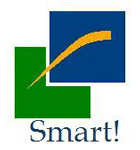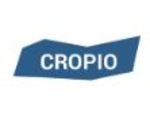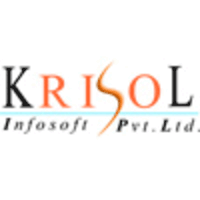Description
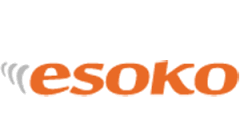
Esoko
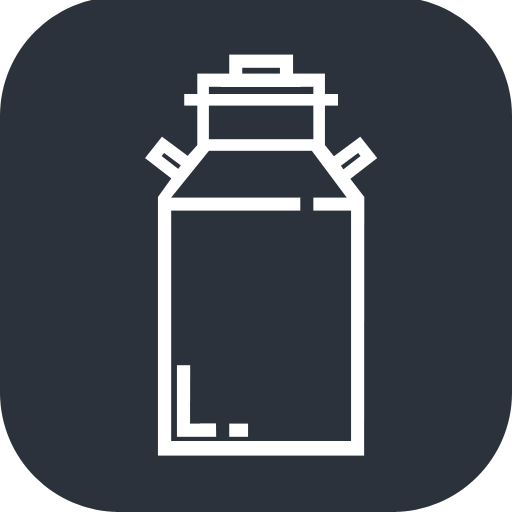
MERI DAIRY
Comprehensive Overview: Esoko vs MERI DAIRY
Esoko and MERI DAIRY are distinct entities, each serving different functions and markets. Here’s an overview of each, along with a comparison and their key differentiating factors:
Esoko:
a) Primary Functions and Target Markets:
- Primary Functions: Esoko is primarily an information and communication service that aims to improve connectivity between smallholder farmers and stakeholders along the agricultural value chain. It provides market prices, weather forecasts, agricultural tips, and data collection services. Esoko's platform is often used for digitizing agricultural extension services and facilitating better decision-making through timely information.
- Target Markets: Esoko mainly targets smallholder farmers, agricultural organizations, NGOs, and governments in Sub-Saharan Africa. Its services are designed to benefit sectors that involve rural development and agriculture, focusing on enhancing the livelihoods of small-scale farmers by connecting them to markets and critical information.
b) Market Share and User Base:
- Market Share: Esoko holds a significant presence within the African agritech market, particularly in countries like Ghana, Kenya, and Tanzania. However, specific market share data is often underreported due to the fragmented nature of the agritech industry and the diversity of its services.
- User Base: Thousands of farmers and hundreds of organizations have utilized Esoko’s services. The platform has successfully partnered with government projects and international development agencies to expand its reach.
c) Key Differentiating Factors:
- Technological Integration: Esoko integrates SMS, mobile apps, and web platforms to reach users in rural and remote areas with limited internet access.
- Focus on Information Services: Unlike entities that may focus on direct service delivery, Esoko emphasizes information dissemination and connectivity.
- Customized Solutions: Offers customizable solutions for NGOs and development agencies to help them with specific data collection and farmer outreach projects.
MERI DAIRY:
a) Primary Functions and Target Markets:
- Primary Functions: MERI DAIRY is typically aligned with the dairy production and distribution sector, focusing on procuring milk from dairy farmers, processing it, and distributing dairy products. It can also involve the enhancement of dairy farming practices and logistics.
- Target Markets: The target market for MERI DAIRY includes dairy farmers, urban consumers, retail outlets, and potentially international markets depending on the scale of operations.
b) Market Share and User Base:
- Market Share: Information on MERI DAIRY’s specific market share would largely depend on its regional focus and scale. The dairy market is competitive and includes numerous local and international players.
- User Base: Its user base primarily consists of dairy farmers and consumers seeking dairy products. The extent of its customer base would depend on its distribution and sales strategies.
c) Key Differentiating Factors:
- Product Range: Unlike Esoko, which is service-oriented, MERI DAIRY is product-oriented, focusing on tangible dairy goods.
- Supply Chain Focus: MERI DAIRY emphasizes efficient supply chain management from farm to consumer, which includes milk procurement, processing, and distribution.
- Potential for Downstream and Upstream Integration: It can engage in both vertical and horizontal integration within the dairy value chain to improve productivity and market reach.
Comparison:
- Function: Esoko is an ICT platform for agriculture, while MERI DAIRY is part of the dairy production and distribution industry.
- Technology Use: Esoko’s strength lies in digital platforms, whereas MERI DAIRY may or may not use technology to the same extent, focusing instead on physical goods.
- Market Focus: Esoko serves a broader agricultural context, while MERI DAIRY is niche-specific to dairy.
Both serve essential roles within their spheres, and their success is driven by how effectively they can serve their respective markets’ needs, leveraging technology, and optimizing supply chains.
Contact Info

Year founded :
Not Available
+257 22 28 03 20
Not Available
Burundi
http://www.linkedin.com/company/esokoshop

Year founded :
2016
+91 97721 96777
Not Available
India
http://www.linkedin.com/company/meridairy
Feature Similarity Breakdown: Esoko, MERI DAIRY
As of my last update in October 2023, Esoko and MERI DAIRY are platforms that generally cater to the agricultural and livestock sectors, but they focus on different aspects and applications within these industries. Please note that new features may have been developed post-October 2023, so it is always a good idea to check their official websites or recent reviews for the latest information. Here’s a general comparison based on historical data:
a) Core Features in Common:
Both Esoko and MERI DAIRY share several core features as they cater to industries closely related to agriculture and livestock management:
-
Data Management: Both platforms likely provide capabilities for managing and recording data relevant to the sectors they serve—Esoko focusing more broadly on agricultural data and MERI DAIRY on dairy-specific data.
-
Market Information: Providing access to market prices and trends for agricultural products and livestock commodities. This can help farmers make informed decisions based on current market conditions.
-
Communication Tools: Enabling communication between stakeholders, such as farmers, suppliers, and buyers, through messaging services or alerts.
-
Advisory Services: Offering guidelines or expert advice relating to best practices, production improvement, or market strategies.
b) User Interface Comparison:
-
Esoko:
- Typically provides a more integrated system that focuses on simplicity and accessibility, with decentralized access for a variety of tools.
- The interface is often designed to be accessible via mobile, given the rural settings and the primary user base of smallholder farmers.
- Emphasis on easily navigable dashboards and tabs for different information services like weather forecasts, market prices, and expert advice.
-
MERI DAIRY:
- Likely has an interface adapted for the dairy sector, focusing on livestock management, including feed planning, health monitoring, and milk production records.
- The user interface might be more specialized with modules specific to dairy operations.
- May support mobile and desktop usage, offering convenient data entry and reporting tools essential for farm managers.
c) Unique Features:
-
Esoko:
- Offers broader agricultural services and is often used for increasing overall productivity across various crops, not just livestock.
- Facilitates mobile money transactions, which can be pivotal for market payments and rural financial services.
- Comprehensive weather service integration to predict climate patterns affecting crop patterns.
-
MERI DAIRY:
- Focuses specifically on dairy farmers, offering unique features such as milk yield tracking, breed-specific health monitoring, and dairy supply chain management.
- Likely includes features for managing animal records and veterinary services scheduling, tailored to dairy farming.
- Advanced analytics related to milk quality parameters and production efficiency metrics.
These differences and similarities highlight how each platform is tailored to meet the needs of its target users. Esoko covers a broader agricultural sphere, while MERI DAIRY narrows its focus to dairy farm operations and herd management, leading to different specialized functionalities.
Features

Not Available

Not Available
Best Fit Use Cases: Esoko, MERI DAIRY
To address the best fit use cases for Esoko and MERI DAIRY, let's explore each solution separately:
Esoko:
a) Best Fit for Types of Businesses or Projects:
-
Agriculture and Farming Cooperatives: Esoko is an excellent choice for agricultural businesses, cooperatives, and NGOs working directly with farmers. Its platform is designed to improve communication and information sharing in the agriculture sector.
-
Market Information Services: Businesses or projects focused on providing market price information and advisory services to farmers and traders can leverage Esoko to disseminate data efficiently.
-
Supply Chain Management: Companies managing agricultural supply chains, from input suppliers to end/export markets, can benefit from Esoko’s capabilities in tracking produce and monitoring supply chains.
-
Extension Services: Government agencies or NGOs offering agricultural extension services can utilize Esoko to provide timely advice and best practices directly to farmers via digital platforms.
b) Industry Vertical and Company Size:
-
Small to Medium Enterprises (SMEs) and Nonprofits: Esoko is suitable for small to medium-sized enterprises and nonprofit organizations that require scalable solutions for rural and agriculture-focused communications.
-
Government and Large Enterprises: Larger entities, including government agencies looking to enhance rural and agricultural ecosystems with technological interventions, will also find value in Esoko’s offerings.
MERI DAIRY:
b) Preferred Option Scenarios:
-
Dairy Farming Operations: MERI DAIRY is specifically tailored for dairy farming businesses, from small-scale dairies to large commercial operations, focusing on improving productivity and operations.
-
Milk Collection and Distribution Centers: Operations that handle the collection, processing, and distribution of milk will find MERI DAIRY particularly useful for managing logistics and supply chains efficiently.
-
Cooperative Societies and Dairy Unions: Cooperative societies engaged in dairy production and sales can use MERI DAIRY for efficient management of members, milk collection, and financial transactions.
d) Industry Vertical and Company Size:
-
Smallholder and Commercial Dairy Farms: Both smallholder farmers and larger commercial dairy operations can leverage MERI DAIRY’s solutions for optimized cattle management, milk yield tracking, and herd performance.
-
Regional Dairy Cooperatives: Regional cooperatives with a focus on improving dairy production and sales within a community or region will find MERI DAIRY’s tools beneficial for scaling operations.
Conclusion:
Esoko primarily caters to the broader agriculture sector, providing communication and information management tools suitable for various stakeholders in the industry, from farmers to government bodies. In contrast, MERI DAIRY focuses on the dairy sector specifically, offering tailored solutions for the complexities of dairy farming and management, making it ideal for operations specifically within this niche industry. Each solution addresses different aspects of agricultural management, catering to different needs and organizational sizes across the agriculture and dairy industries.
Pricing

Pricing Not Available

Pricing Not Available
Metrics History
Metrics History
Comparing teamSize across companies
Conclusion & Final Verdict: Esoko vs MERI DAIRY
To provide a conclusion and final verdict for Esoko and MERI DAIRY, we will consider their overall value, pros and cons, and specific recommendations for potential users.
a) Best Overall Value
Best Overall Value: Determining the best overall value between Esoko and MERI DAIRY requires evaluating them based on criteria such as functionality, user-experience, cost-effectiveness, market relevance, and impact.
-
Esoko: Known primarily for its digital solutions in agriculture, Esoko offers services like market information, advisory services, and data collection tools that enhance productivity for farmers.
-
MERI DAIRY: Specializes in dairy products, focusing on quality, affordability, and nutritional value, serving both individual consumers and businesses.
In terms of comprehensive utility, Esoko might offer better overall value by providing essential information and digital support that can optimize farming practices, thereby indirectly supporting sectors like dairy farming, including entities like MERI DAIRY.
b) Pros and Cons
Esoko Pros:
- Enhances accessibility to market data and advisories for better decision-making.
- Empowers farmers with tools that bridge the information gap.
- Can potentially increase yield and profitability.
Esoko Cons:
- Reliance on technology, which may be a barrier in underdeveloped regions.
- Initial cost and learning curve might deter adoption.
MERI DAIRY Pros:
- Provides high-quality, affordable dairy products directly benefiting end consumers.
- Generally has a straightforward product utility and broad market appeal.
MERI DAIRY Cons:
- Limited influence on production chain efficiency compared to digital solutions.
- May not offer benefits beyond direct consumption/nutrition value.
c) Recommendations
Recommendations for Users Choosing Between Esoko and MERI DAIRY:
-
Assess Needs:
- If the focus is on improving agricultural efficiency and gaining market insights, especially if aiming to maximize profits from dairy farming, Esoko is the recommended choice.
- For direct consumers or businesses seeking quality dairy products, MERI DAIRY is more appropriate.
-
Consider Technological Readiness:
- Users in regions with solid technological infrastructure and a readiness to adopt digital solutions should opt for Esoko.
- In contrast, areas with limited tech adoption may benefit more from directly engaging with the quality products from MERI DAIRY.
-
Long-term Utility vs. Immediate Benefit:
- Choose Esoko for a long-term strategic impact on agricultural processes and planning.
- Opt for MERI DAIRY for immediate consumption and quality satisfaction.
In conclusion, while Esoko provides long-term strategic value through technological empowerment, MERI DAIRY offers immediate benefits in the form of quality dairy products. Users should base their decision on their specific needs, capabilities, and goals.
Add to compare


